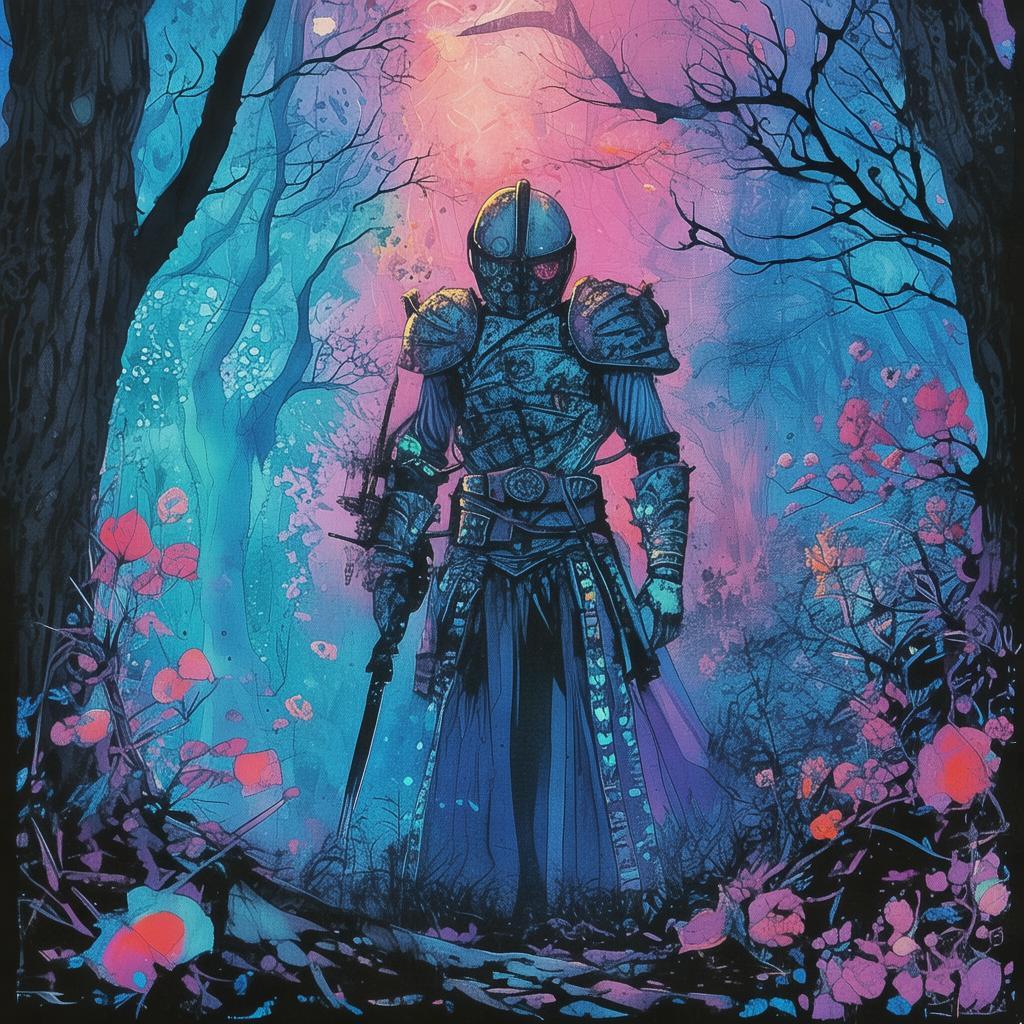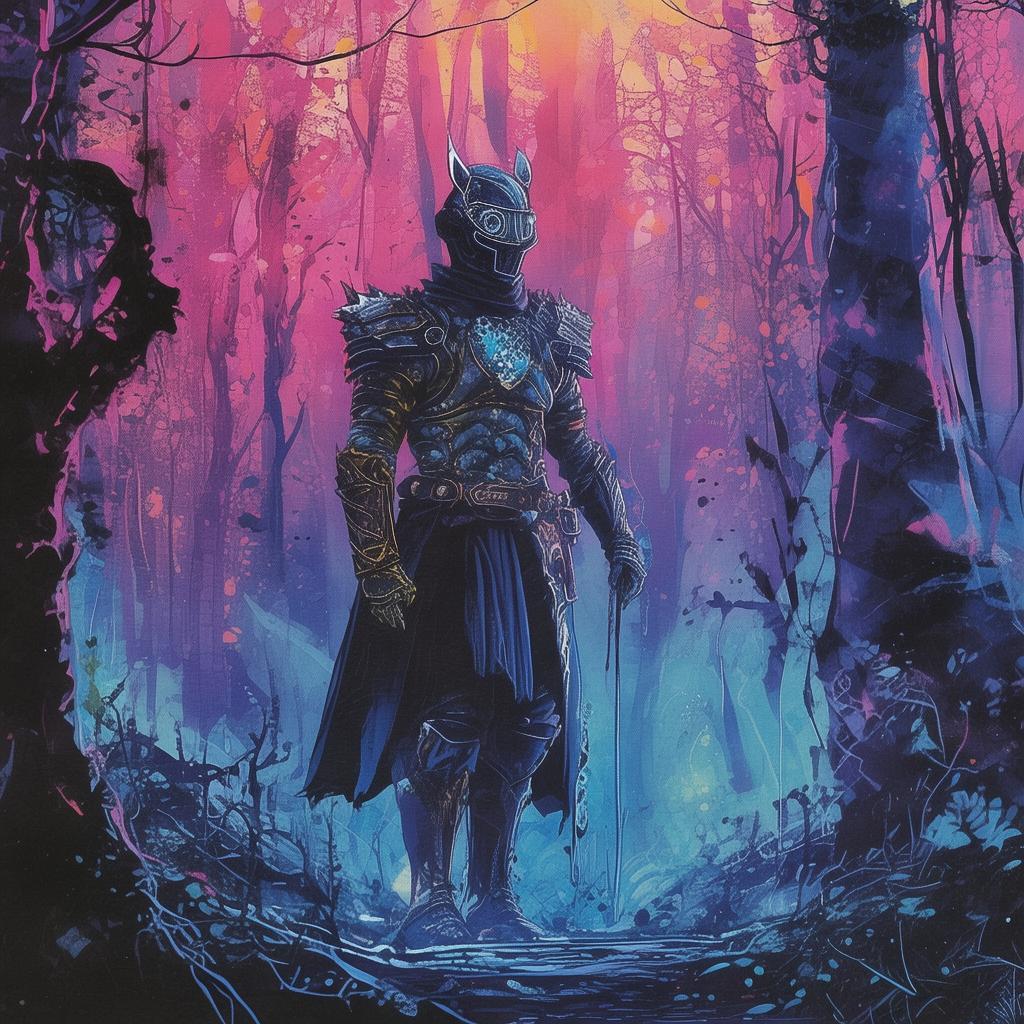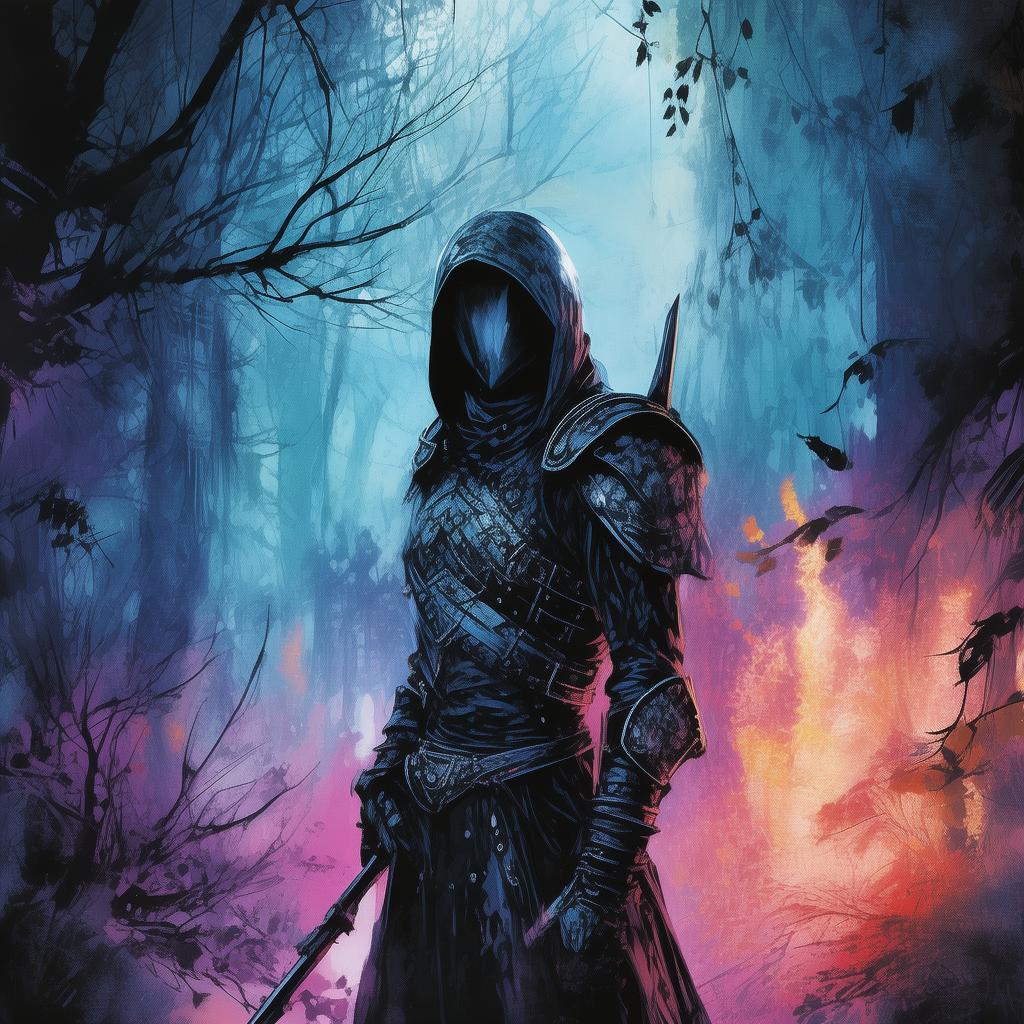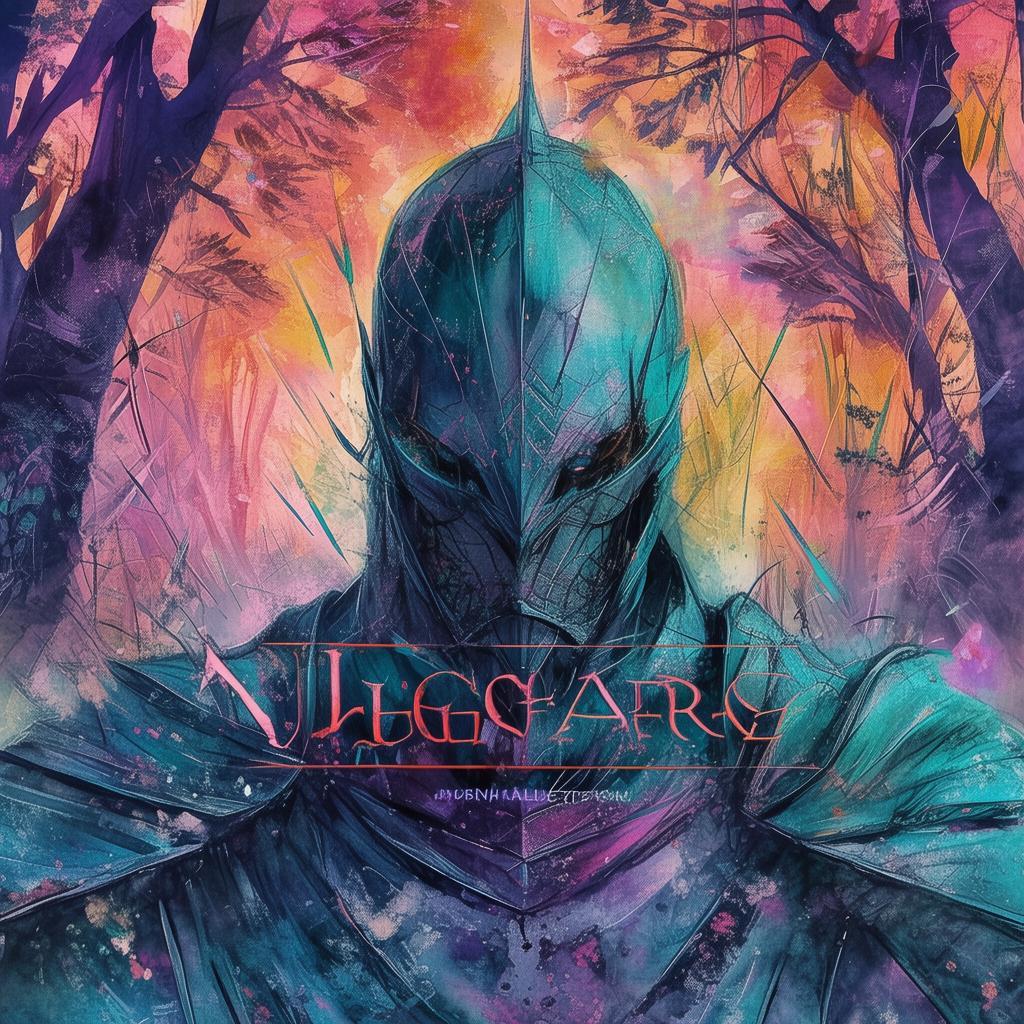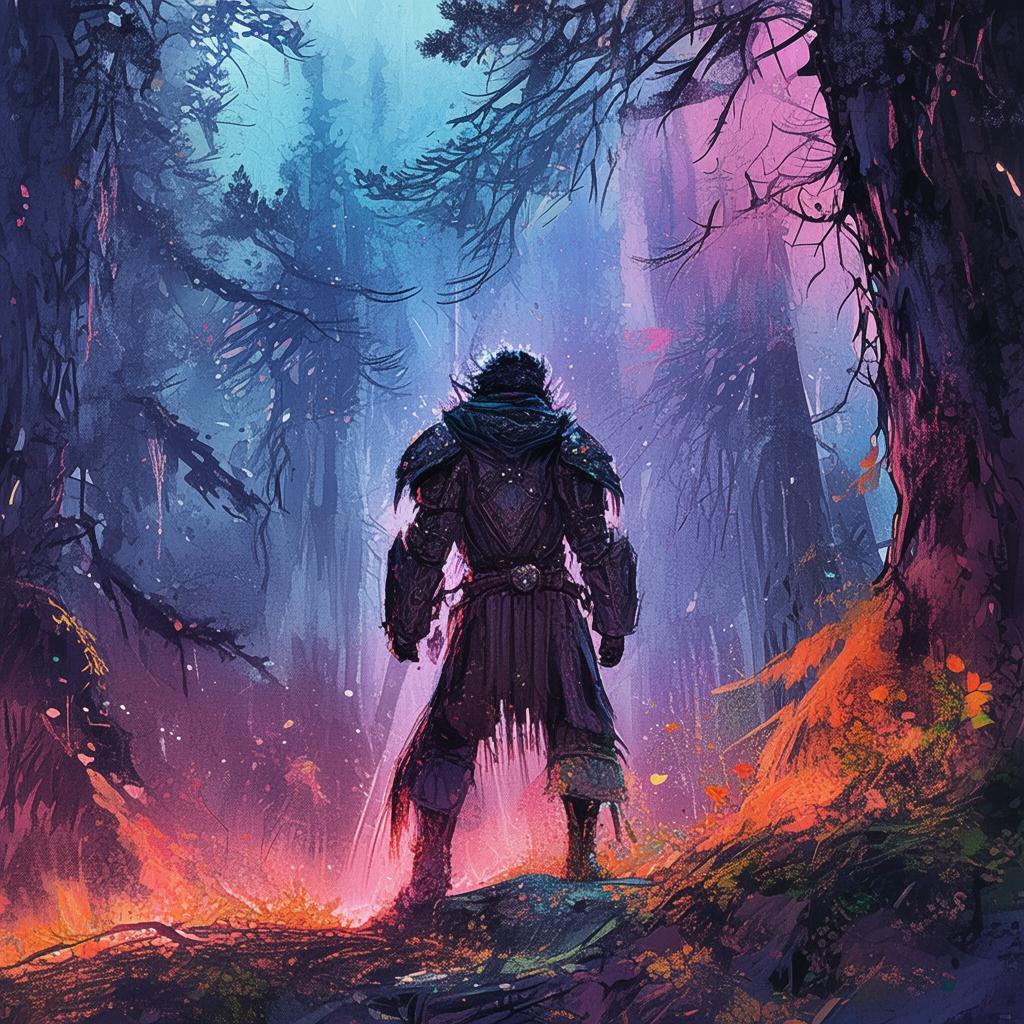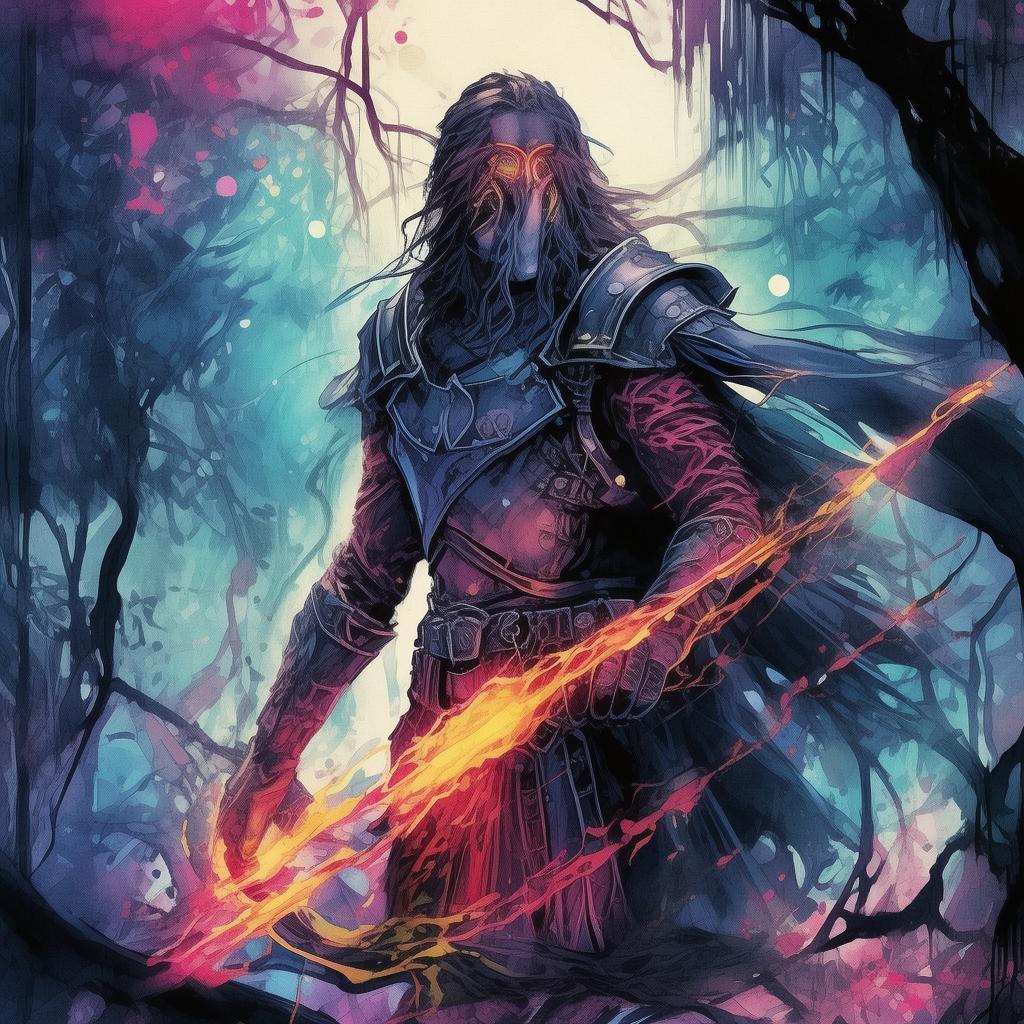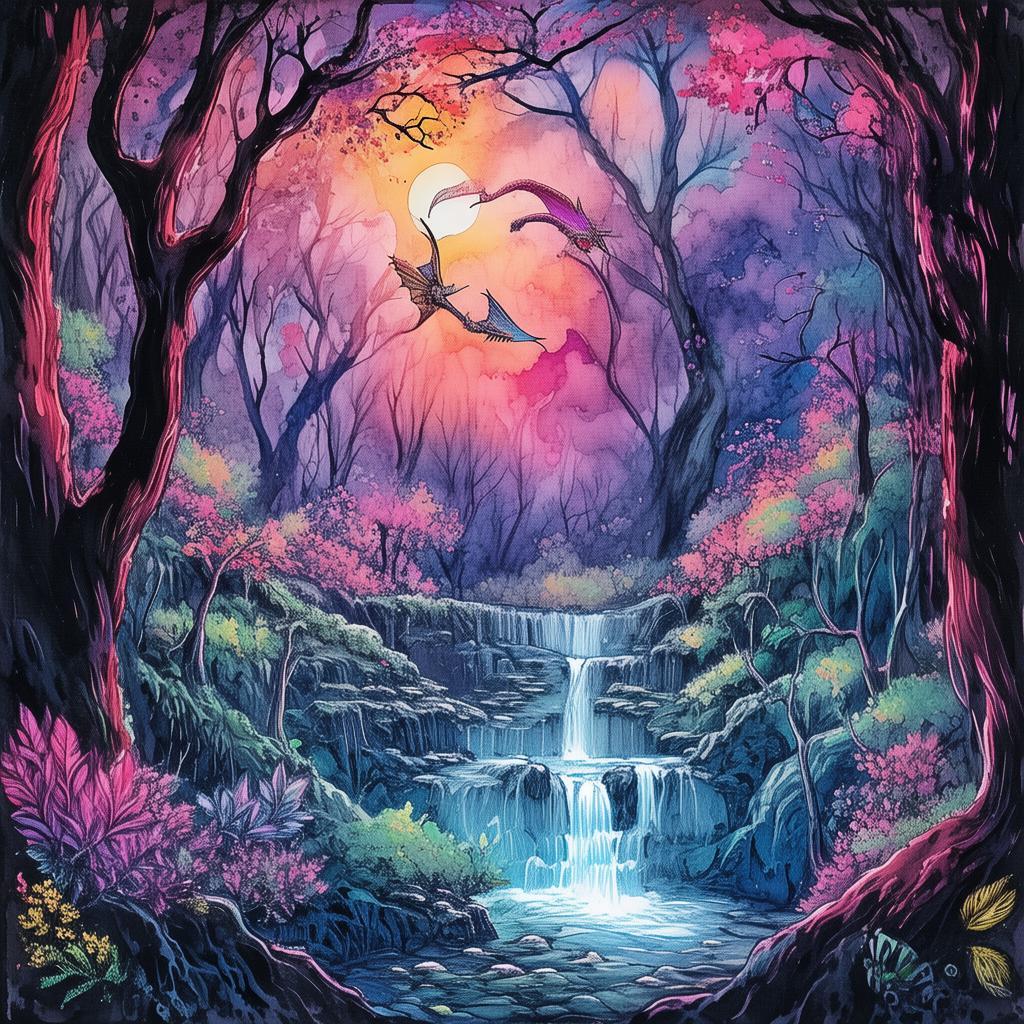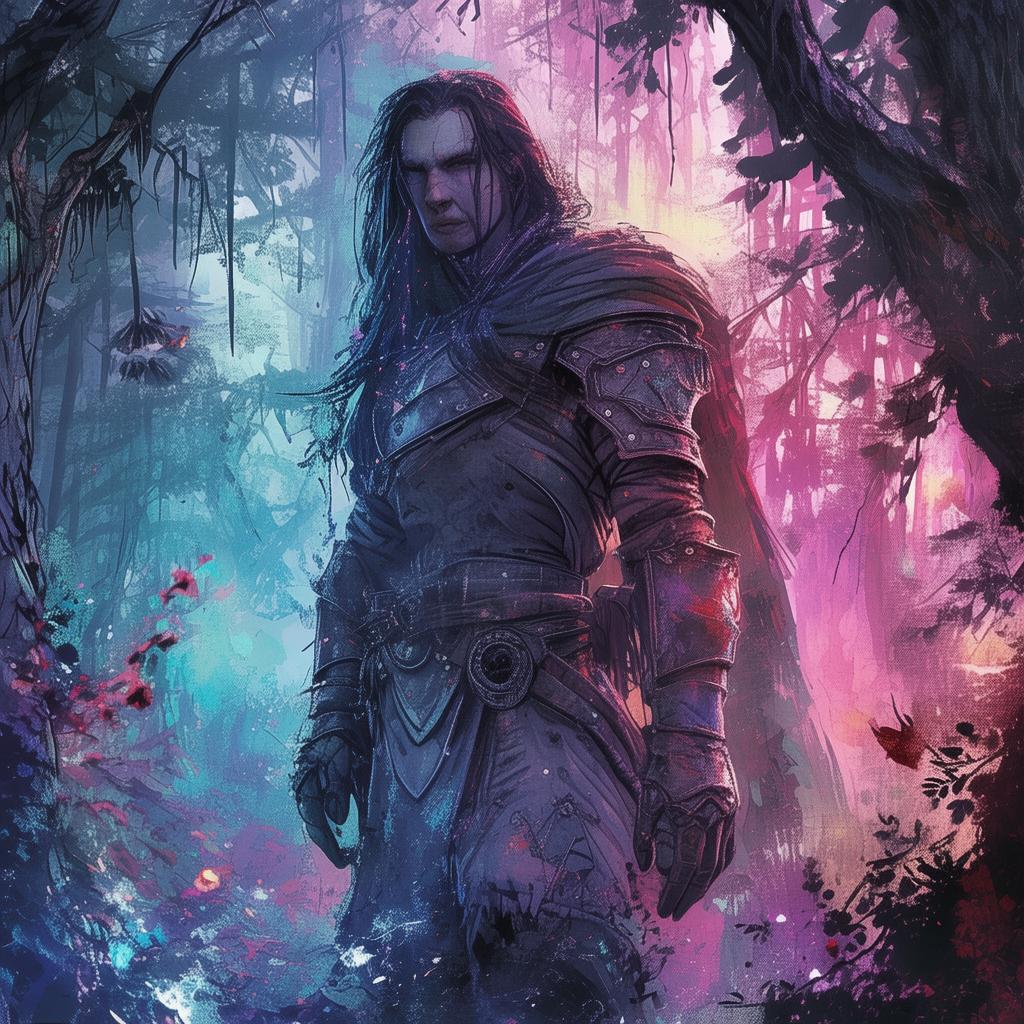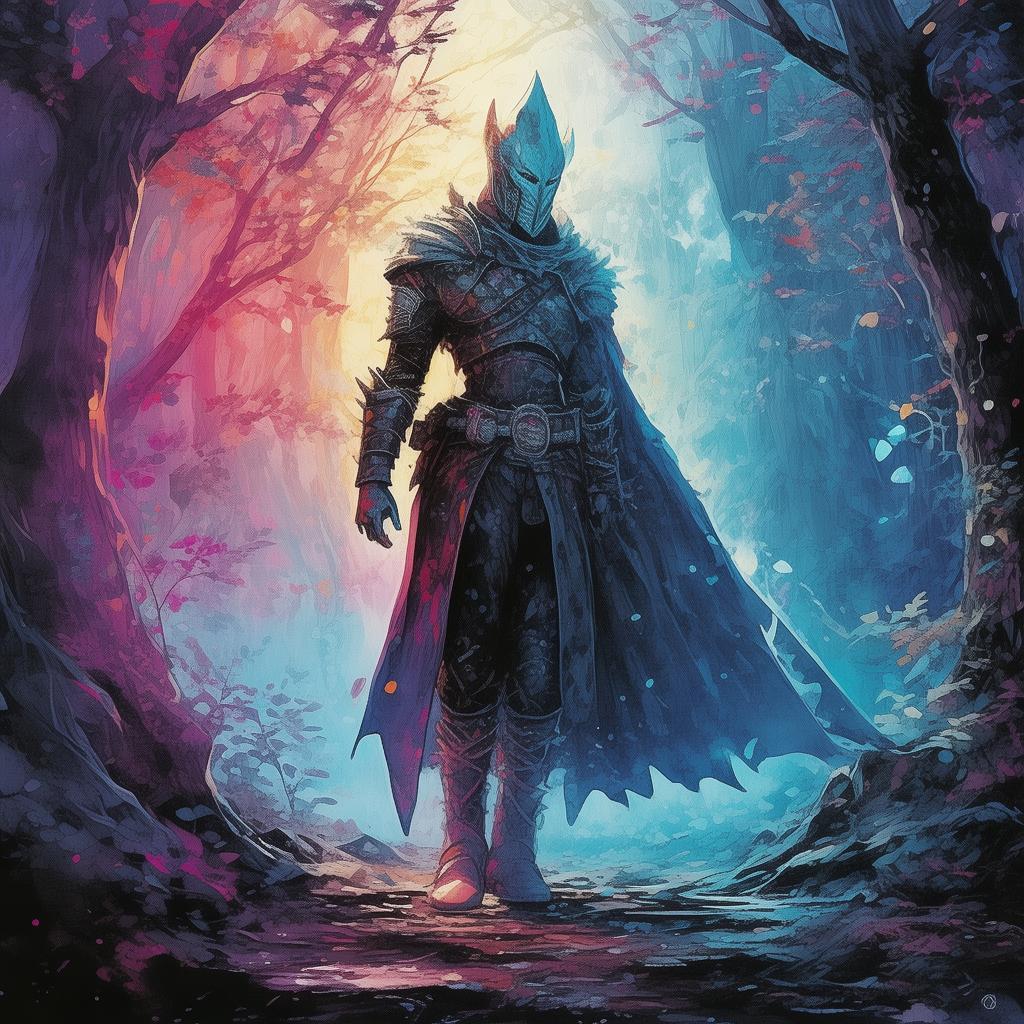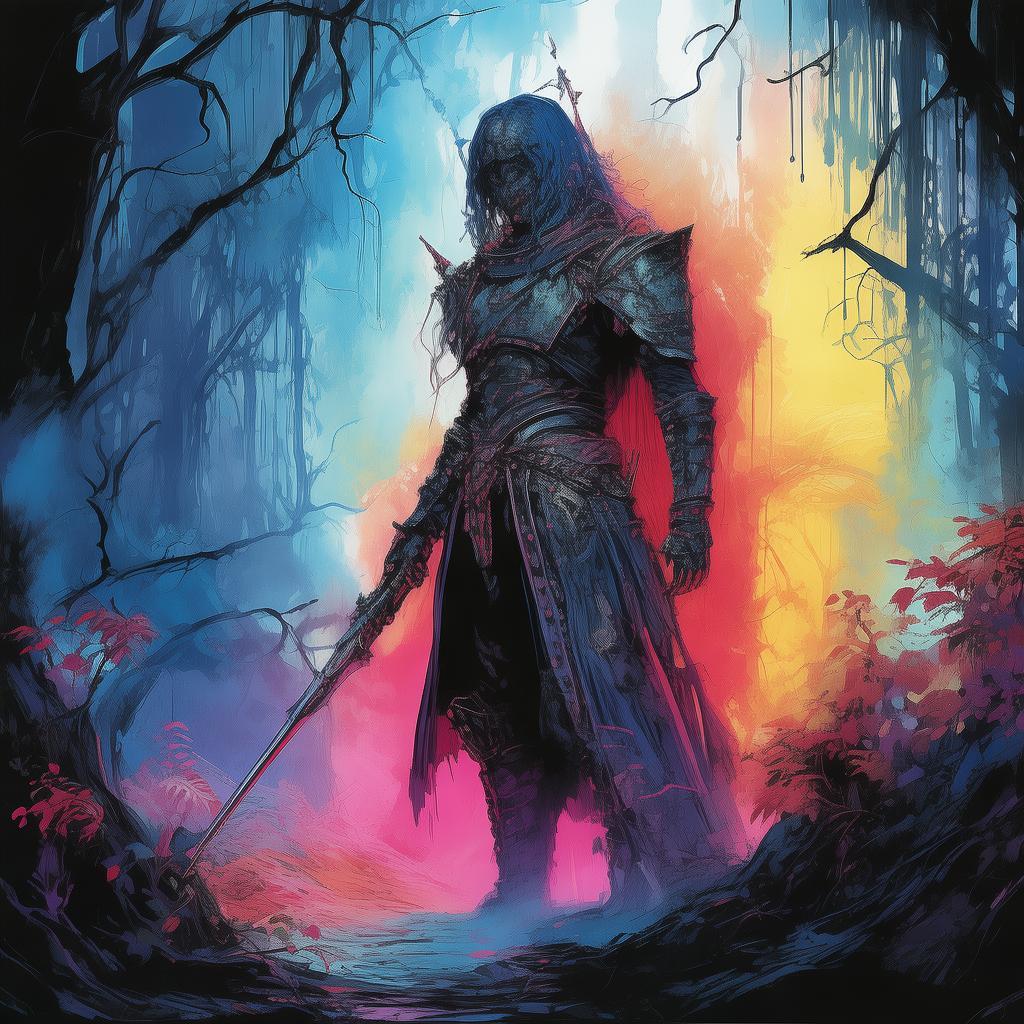The Symphony of the Lost Soul: A Hainanese Tale
In the lush, verdant province of Hainan, nestled between the shimmering South China Sea and the towering clouds of the Wuzhishan Mountains, there lived a young man named Chao. Chao was no ordinary musician; he had a gift for harmonizing the natural sounds of the island with the melodies of his soul. His music had the power to heal the weary and inspire the lost, and it was said that his songs could bridge the gap between worlds.
One stormy night, as the winds howled through the bamboo groves and the waves crashed against the shore, Chao ventured to the old lighthouse that stood sentinel on the edge of a cliff. It was there that he discovered an old, weathered chest half-buried in the sand. With a curious heart and a helping hand, he unearthed it and, to his astonishment, found within a dusty, ancient book titled "The Ghostly Symphony."
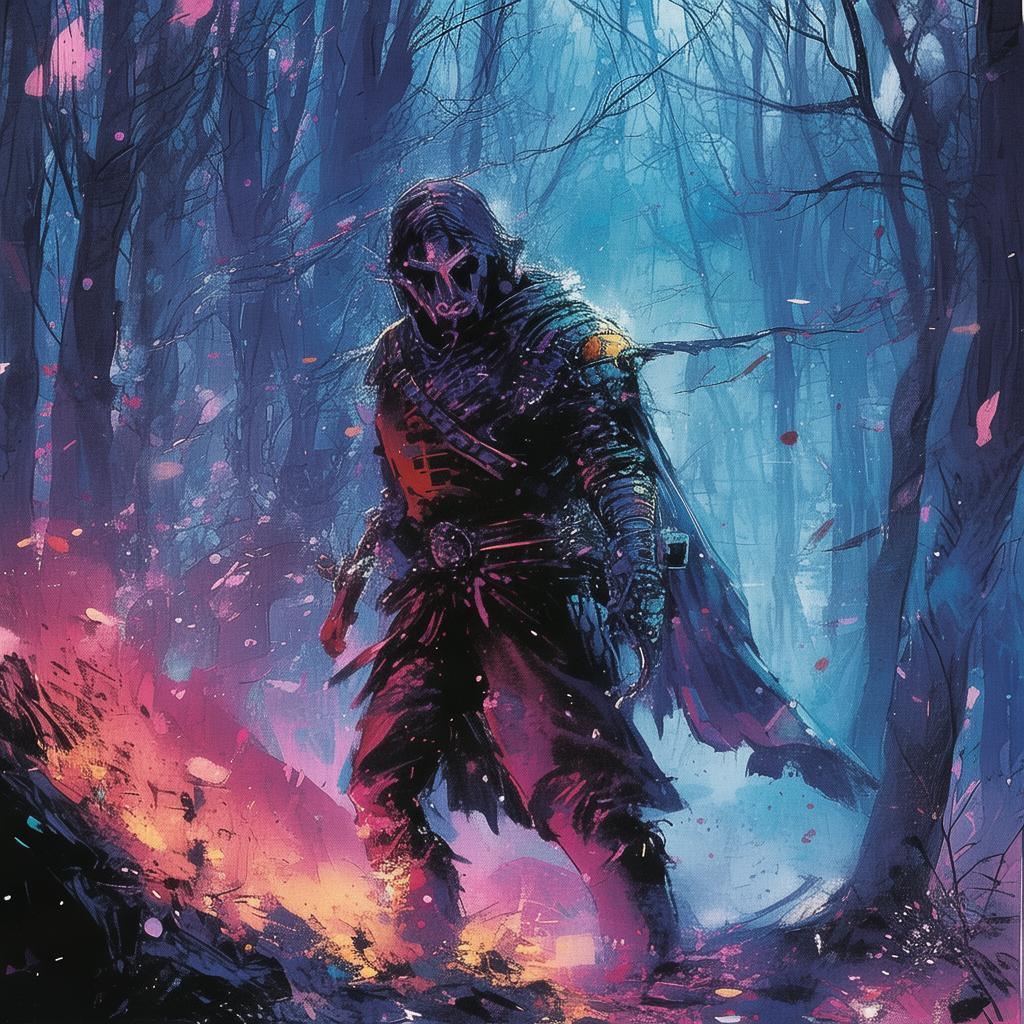
As Chao opened the book, the wind seemed to whisper through its pages, and a haunting melody began to play. The music was unlike anything he had ever heard before—ethereal and mournful, as if it carried the sorrow of a thousand lost souls. The notes danced in the air, weaving a tapestry of sound that seemed to speak directly to his heart.
Intrigued and enchanted, Chao realized that the symphony was not just music; it was a guide, a key to a realm he had never known. The notes began to guide him on a journey through the afterlife, through the realm of the departed souls.
The first soul he encountered was an old fisherman, his eyes filled with tears. "I have no peace," the fisherman wailed. "My family abandoned me on the sea, and I have roamed these waters for years, longing for their forgiveness."
Chao reached into his heart and played a melody of longing and forgiveness. The notes seemed to take on a life of their own, and the fisherman's spirit began to soar. With each note, the fisherman's sorrow lifted, and he found peace.
As the symphony played on, Chao met more souls—each with a story of heartache, betrayal, and loss. He played his melodies, and they were transformed. One by one, the spirits found solace, and the music became a beacon of hope.
But as the journey continued, Chao faced a challenge that tested his resolve. He encountered a young woman, her eyes alight with passion but her heart heavy with despair. "I loved him so much," she whispered. "But he betrayed me, and now I am cursed to wander this earth, never to be free."
Chao felt the weight of her pain, and he played a melody of love and forgiveness. But as the music reached its crescendo, a dark figure emerged from the shadows. It was the spirit of the young woman's betrayer, his eyes gleaming with malice.
"I cannot let you free her," the betrayer's spirit hissed. "She must remain a ghost, forever bound to her sin."
Chao was faced with a dilemma. He could play a melody of punishment, but that would only add to the cycle of pain. Instead, he chose a different path. He played a melody of forgiveness, a song that spoke of redemption and the possibility of second chances.
The betrayer's spirit, caught in the resonance of the melody, was torn. In that moment of indecision, the young woman's spirit began to glow with an inner light. It was as if her soul was being cleansed by the music.
The betrayer's spirit, recognizing the power of forgiveness, relented. "I am sorry," he whispered. "Let her go."
With the spirit of the betrayer's surrender, the melody of forgiveness reached its climax. The young woman's spirit burst forth, free from her curse, her eyes filled with tears of joy.
The journey continued, and with each soul that Chao freed, the symphony grew richer and more profound. He played for the warriors who had fought for their homeland, for the lovers whose love had withered, for the children who had lost their parents too soon.
As the last notes of the symphony echoed through the lighthouse, Chao found himself standing at the edge of the cliff, the wind once again howling around him. The book closed itself, and the symphony faded into silence.
Chao realized that the journey had changed him. He was no longer the same man who had opened the book that night. He had become a bridge, a vessel for the music that could heal and transform.
As he descended the cliff, the villagers began to gather, their eyes wide with wonder. Chao stepped forward, and with a gentle smile, he began to play. The music that emerged from him was different now—deeper, more profound, more powerful. It was the music of the symphony, the music of the lost souls.
The villagers listened, their hearts moved, and as the last note resonated through the night, Chao knew that the symphony had not ended. It had only just begun.
And so, the legend of Chao, the Hainanese musician, spread far and wide. It was said that anyone who heard his music would find peace in their hearts, and that the symphony of the lost souls would play on, forever bridging the gap between the living and the departed.
✨ Original Statement ✨
All articles published on this website (including but not limited to text, images, videos, and other content) are original or authorized for reposting and are protected by relevant laws. Without the explicit written permission of this website, no individual or organization may copy, modify, repost, or use the content for commercial purposes.
If you need to quote or cooperate, please contact this site for authorization. We reserve the right to pursue legal responsibility for any unauthorized use.
Hereby declared.
